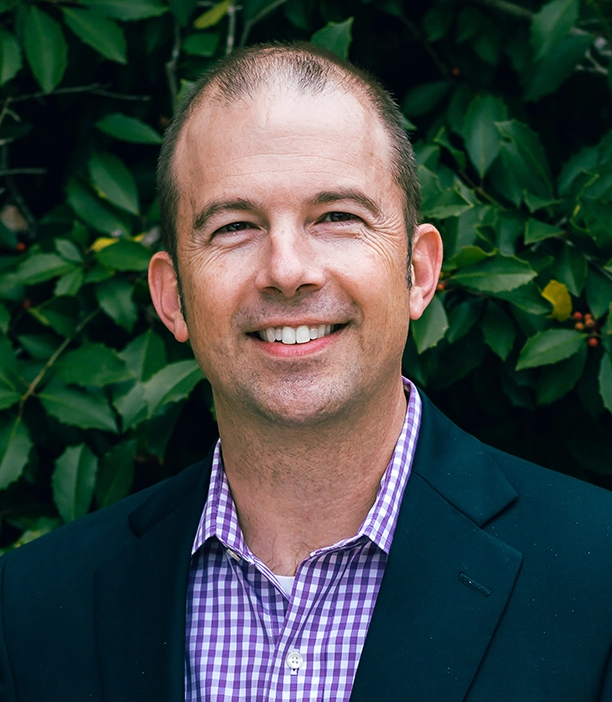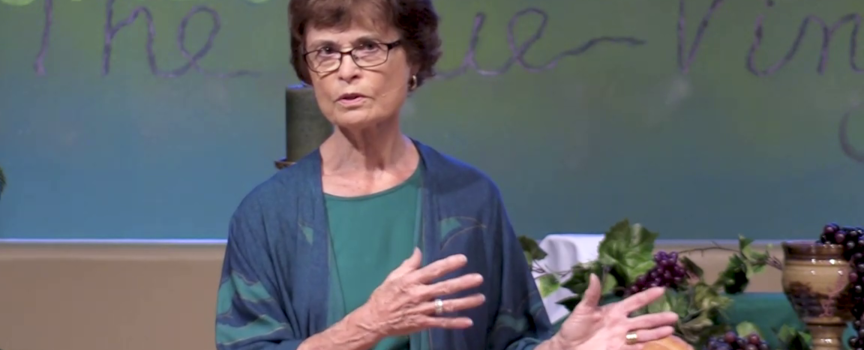The acting chair of the Northern Seminary board of trustees resigned March 20, citing concern that her attempts to persuade the board to apologize for its handling of the resignation of the seminary president were met with “disrespect and condescension.”
Fay Quanstrom, an alumna of the Illinois seminary and associate pastor at Gold Canyon United Methodist Church in Arizona, had suggested the board confess to an inadequate response to the concerns from students, faculty and staff after President Bill Shiell resigned March 13.

Bill Shiell
Shiell had been accused of using abusive and bullying leadership tactics, but the board accepted his resignation with a letter praising his accomplishments. Further, Quanstrom said other board members reacted to her in a way that mirrored the behavior Shiell had been accused of.
“Those on campus cannot comprehend the official silence of the board to their distress and personal pain at the loss of so many colleagues who have withdrawn or resigned. Frankly, as a result of this inaction, the campus has no confidence or trust in the board,” Quanstrom said in a statement.
She also said: “The way the women of the board have been consistently treated with bullying, talking over and interrupting, echoes the experience of the letter writers. To be disrespected and disregarded for my heartfelt efforts signals the end to my contributions as a board member and necessitates my resignation, effective immediately.
An online directory of the seminary’s board shows 11 men and four women, and all 15 appear to be older adults. The board includes two Blacks and one Asian.
The board’s investigations reportedly did not clear Shiell of wrongdoing.
BNG has confirmed with reliable sources that trustees and Shiell entered into a confidentiality agreement that forbids either from speaking ill of the other. While Shiell’s statement that “there have been no financial improprieties or grounds for claims of misogyny, racism or discrimination” is technically true, an internal and external investigation did find “overwhelming” evidence of abuse of power against employees regardless of race or gender. In short, the board’s investigations reportedly did not clear Shiell of wrongdoing.
Also, the vote to accept Shiell’s immediate resignation reportedly was unanimous, although the vote on his severance package was not unanimous.
The leadership trouble has roiled the Baptist seminary, prompting hundreds of students and alumni to organize writing letters to the board and to ask for student representation on the board. The problems also have prompted questions about whether Shiell had exhibited such behavior at prior posts, and whether the board’s praise gives him the opportunity to continue his leadership approach at another faith institution.
The issue at the small seminary also comes at a time when Baptists are examining the treatment of women in the church. The Southern Baptist Convention continues to investigate and respond to accusations of sexual abuse by leaders, while Baptists and evangelicals more broadly are engaged in debate about women’s role in ministry.

Sarah Klingler
Hundreds of students and alumni have joined together to criticize the board of trustees for its handling of the resignation, and now they intend to push for a seat on the board. The students say they are disappointed by accusations that Shiell bullied faculty and staff but even more frustrated that the board defended him.
“We don’t want to discount the fact that the board has certain duties. We know there are fiduciary duties and other duties they are required to uphold,” said Sarah Klingler, a doctoral student who recently graduated from the seminary’s master’s in New Testament program. “The problem is that they were not holding up the ethical and moral and Christian values that the Northern community stands on.”
“They were not holding up the ethical and moral and Christian values that the Northern community stands on.”
Students say Northern has developed a special community of mutual respect and kindness, what they call “tov,” the Hebrew word for “good.” The seminary represents a diverse spectrum of views on theology, and students say they feel comfortable debating each other and professors as part of the educational journey. This may explain how students who live across the country and learn mostly online have come together to protest the board’s apparent support for the former president.
Shiell is accused of behavior that goes against the school’s culture of tov, students say, but a deeper breach of trust is the trustees’ continued support of Shiell, what Klingler calls “centering” the person accused of abuse, rather than those who say they have been hurt.
“This is all sitting in the background for students in things we are trying to cultivate in our churches, our ministries, our homes. And to have that happen and be 180 degrees from what we expected to happen at our school was shocking to a lot of people,” said Justin Charles, a master’s student in the New Testament program.
Charles, who works as a pilot for Delta Air Lines while taking seminary classes online, said the trustee response focused on legal protection of the seminary rather than whether the former president’s behavior was unethical.
“It really seems to me that is the disconnect. Unacceptable is like the polite way of saying it,” he said.
In the letter accepting Shiell’s resignation, the trustees wrote: “We affirm his deep commitment to women in leadership and racial justice.” And Shiell pointed out in his resignation letter that a board investigation found “no financial improprieties or grounds for claims of misogyny, racism, or discrimination.”
Those are issues that could have legal implications.
Quanstrom, who resigned her seat on the board, made a point in her statement to say she hadn’t defamed anyone, an action that could have legal consequences, but she challenged the board for harming individuals and the institution. She said: “Paul wrote to the Corinthians, ‘the letter (of the law) kills, but the Spirit gives life,’ has been borne out repeatedly in recent weeks. Appeal to the law has come at every juncture.”
Quanstrom and the students said the institution is suffering from reputational damage. They know of fellow students and faculty who already have resigned or withdrawn because of the leadership problems.
“There are those in our community who have come to Northern believing it to be somewhat of a different place,” Klingler said. “A place where we, especially women or those of minority status, can grow, can learn to be valued, to feel we are equal partners in the mission of God.”
She said: “It feels like this is a pattern, a tale as old as time. And we don’t think it is a loving thing to do to a person, to just let them get by with saying all the positive things they’ve done in their tenure and not recognizing that there was damage, there was true damage that was ongoing.”
Elizabeth Souder is a freelance writer and editor in Dallas.
Related articles:
Shiell resigns as Northern Seminary president
Northern Seminary’s Shiell on leave while trustees investigate bullying accusations
Northern Seminary names acting president
Here is the complete text of Fay Quanstrom’s letter of resignation from the board:
Sensing the precarious and fragile state of Northern Seminary, I chose to visit campus and listen to faculty, students and staff. I went as a concerned alumna and pastor, not as a board representative. People spoke freely. I did not bait them in any way, nor did I promote any agenda.
Having by default been pushed into service as acting chair, I worked tirelessly, spending a week on location in an effort to bridge the considerable gap between the campus and the board. After listening and speaking with as much prudence and honesty as I could in light of the confidentiality and legal restraints imposed by agreements, I see now my efforts being destroyed along with the future of Northern Seminary by disrespect and condescension.
My intent in serving on (the) Northern board has been to promote the seminary and support its faculty, staff and students, which I have done, lauding faculty teaching and writing and literally recruiting students.
Those on campus cannot comprehend the official silence of the board to their distress and personal pain at the loss of so many colleagues who have withdrawn or resigned. Frankly, as a result of this inaction the campus has no confidence or trust in the board. The board’s silence is interpreted variously as approval of the treatment they have received or indifference to it.
The board owes students, faculty and staff an apology.
The statement I crafted defames no one, only accepts responsibility for what is the board’s responsibility as governing body. The fact that the board, charged with seeing the best interests of the seminary, failed to discern those interests has harmed individuals and the institution. Paul wrote to the Corinthians, “the letter (of the law) kills, but the Spirit gives life,” has been borne out repeatedly in recent weeks. Appeal to the law has come at every juncture.
The way the women of the board have been consistently treated with bullying, talking over, and interrupting, echoes the experience of the letter writers. To be disrespected and disregarded for my heartfelt efforts signals the end to my contributions as a board member and necessitates my resignation, effective immediately.


